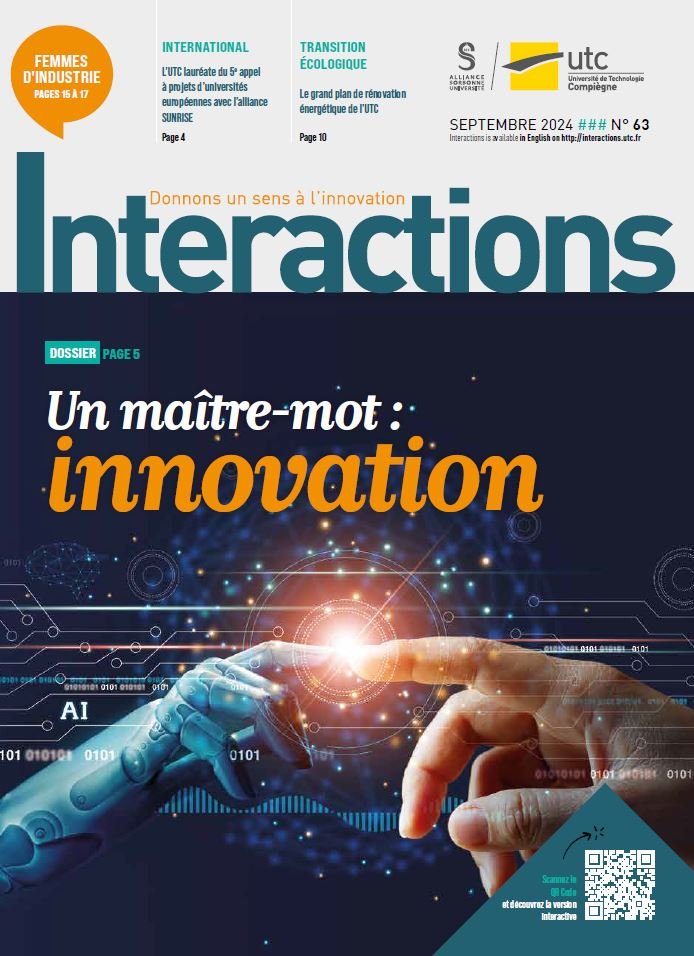You have the floor, Minister Lemaire

For Ms Axelle Lemaire, Junior Minister for The Digital Economy, reporting to the Minister of the Economy, Industry and Digital Questions, “When we talk about the digital world and its actors, we often refer to young digital-intensive start-ups who produce hardware, software and associate services. Beyond being a purely technical domain, the digital economy often introduces new business models and totally changes the way we design, produce and distributes goods and services”.
We are moving into a new form of economy in which innovation cycles are shorter, rely on user and/or developer communities and occasionally ‘dis-intermediate’ or shunt completely certain sectors of the classic economy. The answer here is that the digital economy is much more than a “sector” and that is why I prefer to talk about a ‘digitized economy’. The various economic segments are no longer separate entities and they evolve along with the overall transformation of traditional economics. Smart textiles, connected objects, MOOCs, Web and smart phone applications in medicine, law, finance … there are only a very few sectors now that have not experienced innovative changes because of the digital world.
To what degree does the advent of a digital economy represent a major turning point for the French economy and is higher education particularly of interest here?
A digitized economy is an important turning point inasmuch as we must now live and think with new referrals and attributions: connected trade and business outlets, dematerialized public services, new jobs … Our objective is to accompany start-ups as they grow and develop, on their way to becoming large® business concerns. The prime aim is to include Society as a whole in the trend, without making any differences of age, social backgrounds or territorial differences: the future will be made of everyone’s participation and contributions! Obviously, innovation goes hand in hand with education and research. Our main challenge for the coming years is to be in a position to train more and more people and to do this even better, to improve the competitive position of France in the global economy context: digitization has become an incredible lever to reach out to new audiences, via MOOCs but also provides a way to experiment new forms of apprenticeship, notably in project mode. Our Higher Education must also be prepared to train for new professions, to integrate new pedagogical approaches, to create bridges between the Universities and research areas – like the efforts you are deploying at the Sorbonne Universities Cluster (COMUE), to bring science and technology closer together.
Does France benefit from any advantages here and what is our position in Europe?
Yes, France has advantages, over and above the clichés: our universities are among the best in the world and attract some of very brilliant foreign students; investors and foreign enterprises continue to locate their business here – France ranks 4th for the amount of direct foreign investments; our infrastructures are reliable and efficient as can be observed with our very high data rate fixed networks (2nd in the world). the French count among the most connected nations- 83% use and practice Internet, 400 000 are matriculated for MOOC courses. Along with Germany, France is a driving force for European digital strategies. We are moving towards a connected European ‘single market’ which will be a powerful tool for the expansion of our enterprises and, of course, useful for the consolidation of the European Union as the world’s first economy power.
The various economic segments are no longer separate entities and they evolve along with the overall transformation of traditional economics.
What actions in favour of digitization do you see as most strategic and innovative in coming years? And how should we reassure people who are scared of digitization?
This is indeed the objective of the French Government’s digital plans, published in June. Thera are 4 priority thrusts: freedom to innovate, equality of rights, fraternity – digital access for all and an exemplary transition of the State services. These axes will comprise the spine of the digital economy draft bill I shall be presenting to Parliament before the end of the year. In order to innovate freely we must make best use of ‘French Tech’, the promotion of open innovation, of open access (free access to research papers and publications), free user licenses. It is a way to guarantee and reinforce citizens’ rights as to the safety of their personal data and/or on line payments; it also reinforces the confidence and transparency through having a truly neutral net context. And the State authorities must be exemplary. Innovating also means developing dematerialized public services, combining ease of access, and efficiency: the « digital hospital, on line registration of complaints, social service simulations, mesaides.fr. … there are lots of projects in the offing. We should also be looking at the opportunity to do things more easily with a digital tool, such as being easier ways to collect data and this is the ambition of our programme “One stop question portal” or simplified access to administrative services as can already be seen at “France Connect”. In a word, we have a splendid chance here to be “more open” in a digitized world.
Did you know this?
- 110 billion € : The digital fraction of the French GDP, more than in financial service and agriculture
- 1.5 Meuros : Value of jobs dependent on the digital economy in France
- +40 % : Potential market turnover gains for a company that proves successful in its digital transformation.




